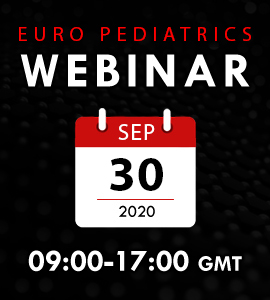
Rachel Ariyanayagam
Southend University, UK
Title: COVID-19 and the challenges of Paediatric Anaesthesia: a survey of practice in a UK District General Hospital
Biography
Biography: Rachel Ariyanayagam
Abstract
Challenges in paediatric anaesthesia during the COVID-19 pandemic include the impact of personal protective equipment (PPE) on communication, the infection risks of carers being present for induction of anaesthesia, the potential infection spread with gaseous anaesthesia induction techniques, and management of the child with mild upper respiratory tract infection (URTI). We surveyed anaesthetists in a UK hospital that undertakes emergency and elective paediatric surgery, regarding these issues.
Concerning children with various COVID statuses, we surveyed what PPE doctors would wear, whether they would allow carers to be present for anaesthesia induction, the use of gaseous induction of anaesthesia, and willingness to proceed with surgery in a child with mild respiratory infection symptoms.
Survey response was 47% (n=48). Even if the child tested COVID negative, 65% of respondents would wear a visor, 40% a FFP3 mask, and 31% a fluid resistant gown. For some, this decision depended on the type, timing and number of tests conducted. For anaesthetic induction, there is reluctance to allow parents/guardians with untested COVID status in the operating theatre or anaesthetic room, and reluctance to use gaseous techniques in a COVID positive child. 12.5% stated they would cancel surgery for a child with mild URTI symptoms (even with a negative COVID test), for whom they would have proceeded with surgery pre-pandemic.
This survey highlights the debate over the reliability of COVID testing in children and what is best anaesthetic practice for a COVID positive child, emphasising the need for further understanding of this disease.

